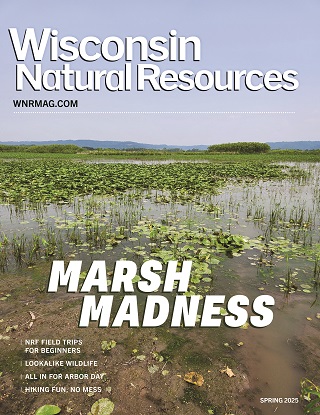Contact: DNR Office of Communications
DNRPress@wisconsin.gov
DNR To Host ‘Threats On Tap: Marginalized Communities’ Webinar Sept. 15
Second Webinar In Series Of Panel Discussions About Safe Water For All
MADISON, Wis. – The Wisconsin Department of Natural Resources (DNR) will host the second of three educational webinars, Threats on Tap: Marginalized Communities, from 11 a.m.–12 p.m. on Wednesday, Sept. 15.
The webinar series is part of the Safe Water For All Campaign announced in July that is dedicated to educating the public on the leading drinking water contaminants, including PFAS, nitrates, lead and their impact on your health.
While the Safe Drinking Water Act guarantees all Wisconsinites access to clean, drinkable water, not everyone can safely turn on the tap. The United States has remarkable water systems, developed over two centuries of technological, institutional and economic advances. However, the benefits of those systems have not been equally felt across the state.
Panelists will discuss environmental justice and water safety issues facing marginalized areas – communities of color, low-income communities and rural communities. Panelists will also share ideas for actions government agencies and the public can take to help ensure safe and affordable drinking water for all.
Speakers include Regina Strong, environmental justice public advocate in Michigan’s Office of Environmental Justice, Brenda Coley, co-executive director of Milwaukee Water Commons, a nonprofit organization, and Margaret Ann Noodin, director of the Electa Quinney Institute for American Indian Education. Maria Redmond, director of the Office of Sustainability and Clean Energy in the Wisconsin Department of Administration, will moderate the session.
Gov. Tony Evers declared 2019 the Year of Clean Drinking Water to address the fact that not all Wisconsinites have access to safe, clean drinking water. Gov. Evers directed the DNR and DHS, the agencies entrusted with protecting Wisconsin’s health and water resources, to strengthen water quality standards for nitrate, PFAS and lead.
Learn more about how the State of Wisconsin is protecting our drinking water here.
Safe Water For All Panel Series
Threats On Tap - Marginalized Communities At Risk
11 a.m. Sept. 15
While the Safe Drinking Water Act guarantees all Wisconsinites access to clean, drinkable water, not everyone can safely turn on the tap. The United States has remarkable water systems, developed over two centuries of technological, institutional and economic advances. However, the benefits of those systems have not been equally felt across the state. Water systems that serve marginalized areas – communities of color, low-income communities and rural communities – are more likely to be unsafe. Hear about the efforts to understand and to secure safe and affordable drinking water for every community.
Speakers:
Brenda Coley, Co-Executive Director, Milwaukee Water Commons
Margaret Ann Noodin, Director, Electa Quinney Institute for American Indian Education, UW-Milwaukee
Maria Redmond, Office of Sustainability and Clean Energy Director, Wisconsin Department of Administration
Regina Strong, Environmental Justice Public Advocate, Michigan Office of Environmental Justice, Michigan's Dept. of Environment, Great Lakes, and Energy
Watch via the DNR’s YouTube channel here.
Protecting The People - Safe Water For All
12 p.m. Oct. 12
Wisconsin has a long history of protecting the state's waters and even led the nation in drinking water protection with the passage of the 1983 groundwater law. Approximately two-thirds of people living in Wisconsin get their drinking water from groundwater. Adequate supplies of uncontaminated groundwater are crucial not only for our health but also for our breweries, agricultural operations and cutting-edge industries in Wisconsin. Hear how Wisconsin is working to protect your health and what you can do to get involved.
Speakers:
Jennifer Hauxwell, Associate Director, UW-Madison Aquatic Sciences Center
Jon Meiman, Chief Medical Officer and State Occupational and Environmental Disease Epidemiologist, Wisconsin Dept. of Health Services
Bruce Rheineck, DNR Groundwater Section Chief

